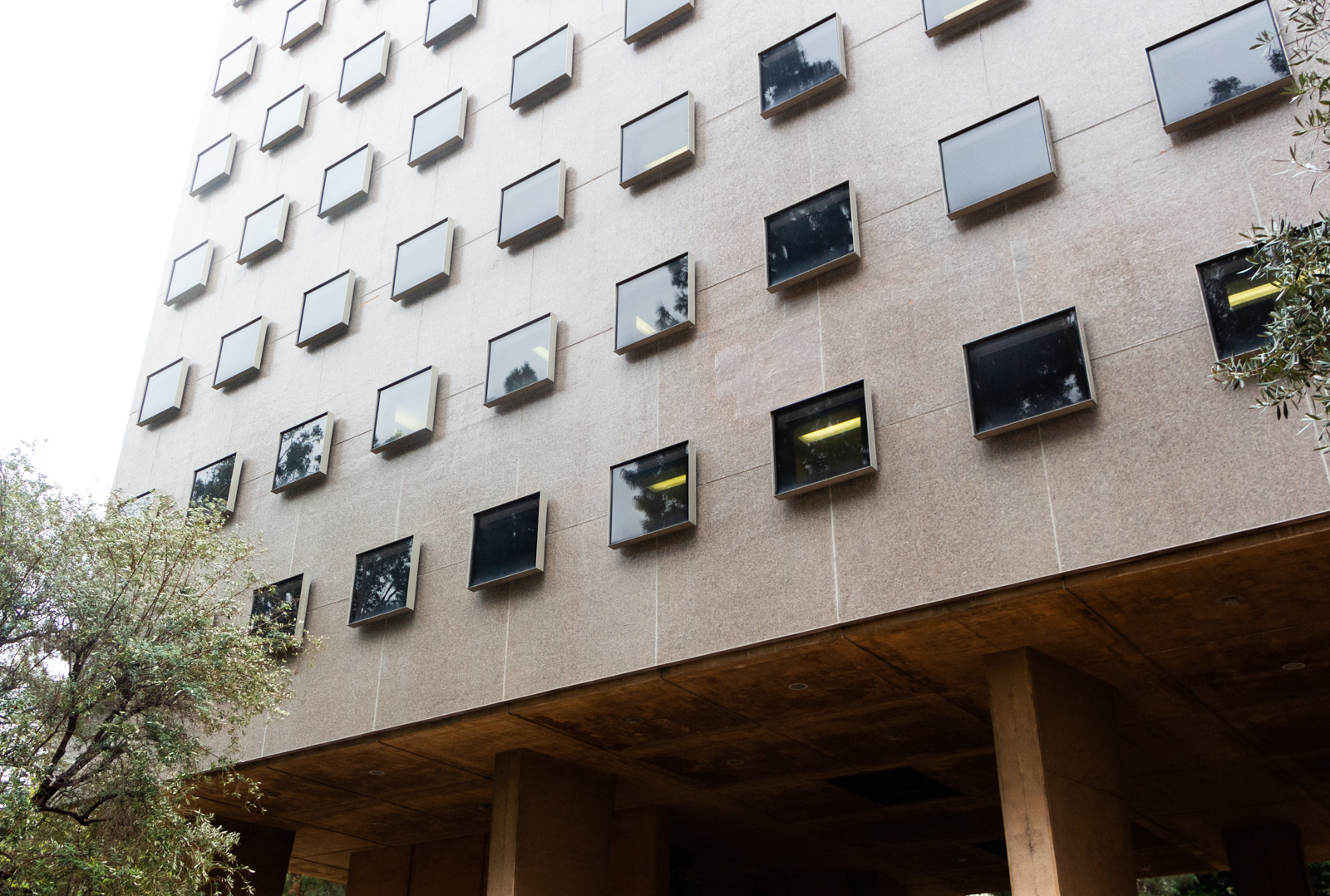Updating traditional Western canon could support a more holistic view of humanities

The Western canon, a collection of classical works that forms of the basis of the humanities, is mostly the product of dead, white, European men. It’s time UCLA diversified its teachings. (Daily Bruin file photo)
By Lucy Carroll
April 29, 2019 10:55 p.m.
“Stand on the shoulders of giants,” they say.
If only those shoulders weren’t always attached to dead white men.
The Western canon – which is the basis for a range of humanities courses – refers to a collection of vital works throughout history. It includes landmark pieces by people like Jean-Jacques Rousseau, William Shakespeare, Thomas Hobbes, Aristotle, Plato, John Stuart Mill and John Locke.
That list also happens to be notoriously exclusive, hegemonic and Eurocentric.
The few recognized women in the canon are often taught in the context of feminist courses, and the non-European authors often suffer a similar fate, separated from the central canon based on their geography or race. The prevalence of white male authors speaks to a long historical trend of purposeful exclusion based on race and gender.
Yet it’s the material universities across the nation continue to teach – and UCLA is no exception.
Humanities courses, especially those that rely heavily on a canon, must reinvent themselves in order to create a thoughtful dialogue built on a diversity of narratives. After all, the literature provided has the ability to shape students’ future understanding of these fields. And UCLA has a responsibility to take progressive measures to refurbish traditional canons so they include new voices.
The widespread acceptance of the Western canon permeates multiple campus departments. Take Philosophy 7: “Introduction to Philosophy of Mind” – a lower-division offering for philosophy majors – which includes nine male authors in the first month of its syllabus. Meanwhile, only three women are taught throughout the quarter.
And in the grand scheme of things, a course like Philosophy 7 probably isn’t the worst offender. But this narrow approach to the humanities limits the perspectives of students entering the field, and pigeonholes students’ conception of who can contribute to the field and what ideas are acceptable.
This only continues the cycle of hegemony and exclusivity in the humanities.
“I think that these voices need to be incorporated as if they’ve always been there because they have – we’re just now paying attention to them,” said Saraliza Anzaldua, a doctoral student in philosophy.
The issue isn’t just one of adding new work to an old canon – there is a long line of women and non-European thinkers who have been purposefully scratched from the literature.
UCLA’s failure to elevate a variety of narratives is not just narrow-minded but represents a conscious choice to exclude certain voices per tradition – something that shapes the perspective of the next generation.
Emily Emard, a first-year history student, said her consistent exposure to American and European history has made her hesitant to branch out into other classes, such as Asian studies.
“It’s not because I’m not interested in it, but I’m unfamiliar with it, so I don’t know if that’s where I would place myself if I knew I could better succeed in other classes,” Emard said.
The narrow nature of the canon has facilitated a culture where students are more likely to study what they are prepared to succeed in, even if it means failing to diversify their perspective.
But if UCLA begins the push toward diversification at the introductory level, it has the potential to shift the very nature of what is now considered traditional.
In order to create a truly inclusive canon, we must incorporate centuries of valuable work that was invalidated by our predecessors. Actively including a wider range of voices in the canon can increase the diversity of future philosophers. If students can empathize with the authors they read, they are more likely to see their own voice as something of value.
On top of that, it is vital to contextualize the work of traditional authors. When humanities courses ignore the sexism and racism prevalent in so much of the canon’s literature, they do a disservice not only to students but to a more holistic understanding of our own histories.
“Oftentimes the things that are most in contrast with our values actually have the most potential to teach us about where we’ve come from and what persists,” said John Branstetter, a political science lecturer.
Diversification of the canon and traditional Western literature are by no means mutually exclusive. In fact, it’s an unwillingness to bridge the gap between the two that may be most harmful.
Branstetter added that the traditional canon and modern literature complement one another when they are interconnected.
“I think that recognizing that gives us new opportunities not to throw out the old, but to integrate the new and productive ways that drive the conversation forward,” Branstetter said.
This is not to imply an overhaul of the canon would be easy. Changing it would affect the knowledge that long has been considered the basis of the humanities. Including nontraditional canon, literature will involve cutting some of the traditional work in introductory courses. But those courses should be geared toward a basic, holistic understanding of the field – and the canon, as it now exists, is not representative of that.
A canon is not set in stone. Instead, it should pay tribute to the ever-evolving nature of the human experience.
Someone has to make the first step away from generations of bearded white men and Socratic seminars.
Perhaps that someone should be the No. 1 public university in the nation.

